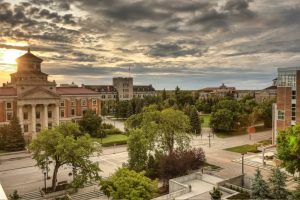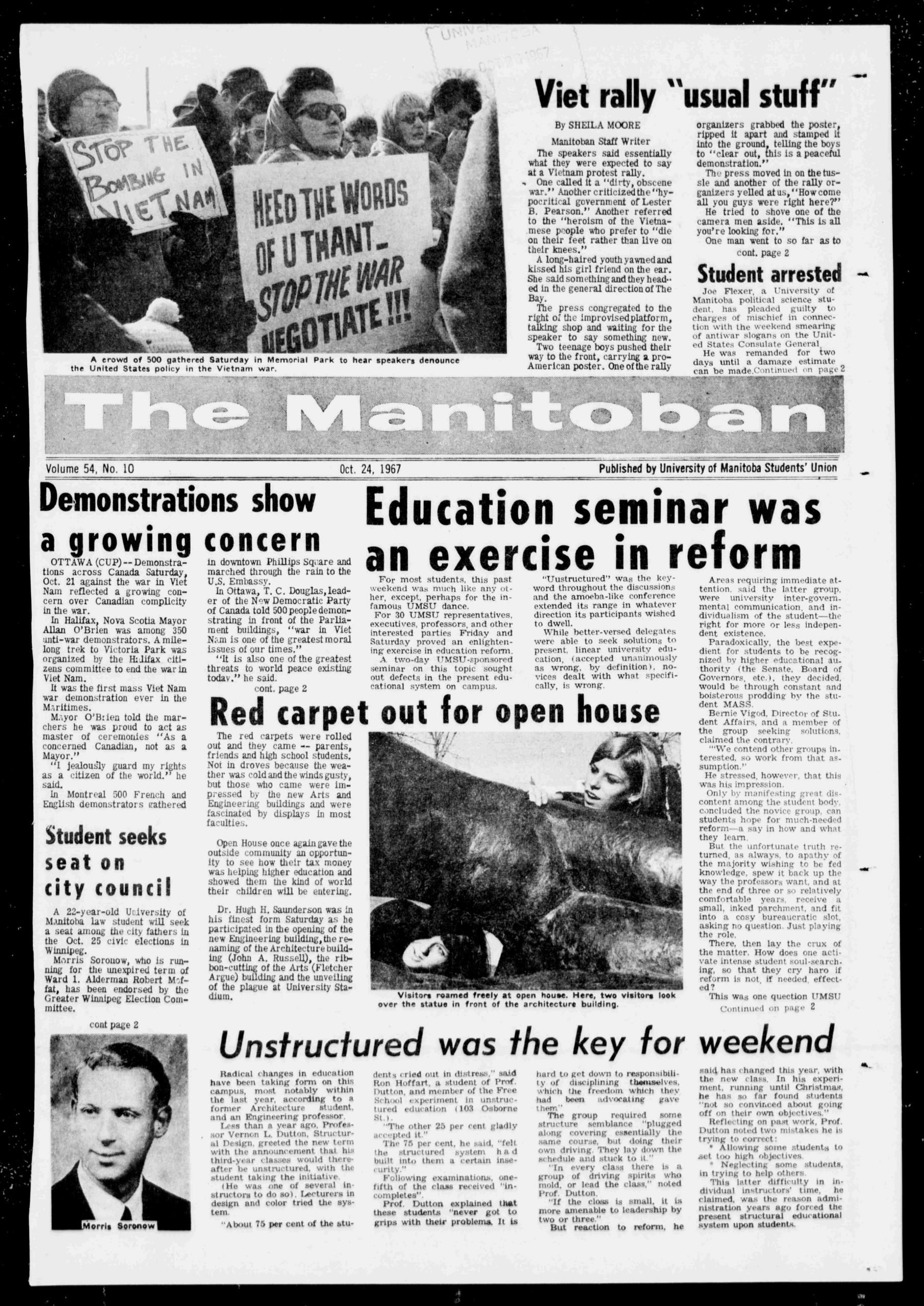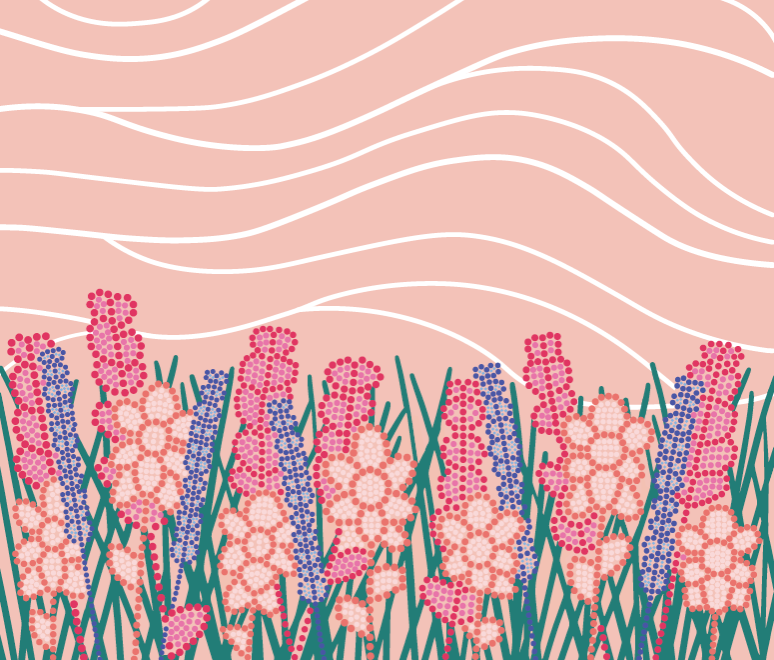By Adele Perry and Pauline Tennent
As of 9 May 2024, there were at least seventeen encampments or protests on Canadian university campuses in support of justice in Palestine, and disclosure and accountability of institutions with ties to the Israeli state. At the University of Manitoba on Treaty 1 territory, the encampment was set up by the Students for Justice in Palestine on 7 May; the following week, an encampment was set up at the University of Winnipeg.

In these spaces, students and allies engage in some of the most timeworn and treasured practices of social action: they educate themselves and others, they raise attention, they make connections between struggles here and across the world. In tents and on tarps, people organize and share meals, make decisions about how to do things, hold prayer services, organize soccer games, demand that local politicians search the landfill, and on the biggest tarp – listen to lectures. In encampments we see solidarity, care, deliberative governance, and education in practice.
These forms of protest are the kinds expressly protected by both domestic and international human rights instruments and Indigenous protocols. Mohawk leader Ellen Gabriel reminds us that university campuses like McGill’s are on Indigenous lands, and that students “must be protected on our lands as they strive for human rights for all Palestinians.” In Canada, section 2(c) of the Charter protects “the freedom of peaceful assembly,” defined by courts to include peaceful demonstrations, protests, parades, meetings, and picketing. The status as to whether universities fit under the Charter, however, can be unclear. The Manitoba Organization of Faculty Associations highlights the importance of this freedom of expression and debate, even of contested points of view as “essential to learning and the advancement of knowledge” and go on to add that limiting or pre-empting such gatherings fails to “uphold the foundational purposes of our institutions.”
Earlier this month, the forcible removal of the encampment at the University of Alberta and the University of Calgary echoed events south of the border and have rightly garnered concern across Canada, including from the Canadian Association of University Teachers. Indigenous signatories from Treaty Six identified the removal as violation of treaty principals and Indigenous law that did “real harm to students, staff, and community members, Indigenous and non-Indigenous alike.” In Quebec, courts have rejected efforts to have injunctions granted to remove encampments. Quebec Superior Court Justice Chantal Masse found that “the balance of the inconvenience leans to the side of the protestors, whose freedom of expression and peaceful assembly would be seriously effected” by the relocation of the encampment.

These efforts of students protesting the atrocities in Gaza on the campuses of public universities have particular meaning in a context where educational facilities including schools, libraries, archives, and heritage sites in Palestine have been systematically damaged or destroyed, while all twelve universities in Gaza have been destroyed in what has been called scholasticide. These efforts also have meaning in the context of Canada and institutions committed to decolonization, equity, and justice. UBC’s Institute for Gender, Race, Sexuality and Social Justice remind us that encampments for Palestine are part of a “long global legacy of student activism” against segregation during the US Civil Rights movement, apartheid in South Africa, the wars in Vietnam and Iraq, and in support of Black Lives Matter, Indigenous self-determination, and more. Writing “in profound support of our students’ actions in solidarity with Palestinian people and in protest of the genocidal violence, occupation, and dispossession occurring in Gaza and the West Bank,” the University of Victoria’s Indigenous Governance programme explains that the goal is “to empower our students to think and act within a framework that is critical, anti-oppressive, and relational,” goals that are furthered through the kind of “grounded and activist practice, critical and transformative thinking, knowledge mobilization, and relational and coalitional work” that occurs at encampments. The Race Equity Caucus of York University’s Faculty Association argue that responses to student demands for divestment reflect “broader dynamics surrounding anti-Palestinian racism” and call for solidarity with student demands.
The Centre for Human Rights Research (CHRR) has a mandate to foster and disseminate research related to human rights, broadly defined, on campus and in the wider community. This is a mandate that is invariably shaped by both long histories and current events unfolding in real time. In different ways, we have seen each of the CHRR’s four research themes – the right to food and water, Indigenous people and human rights, borders and human rights, and reproductive and bodily justice – shaped by the violence that followed attacks on southern Israel in October last year. In March 2024, the UN’s Special Rapporteur reported that “the overwhelming nature and scale of Israel’s assault on Gaza and the destructive conditions of life it has inflicted reveal an intent to physically destroy Palestinians as a group,” and constitute reasonable grounds for the commission of the crime of genocide.

In an earlier webinar, the CHRR explored connections and solidarities with Palestine, and our upcoming podcast will include Winnipeg Centre MP Leah Gazan, Independent Jewish Voices Harold Shuster, University of Ottawa’s Alex Neve, and University of Toronto’s Youcef Soufi on this question. They remind us that is a crucial time for individuals, communities, and institutions to stand firmly for human rights. These include the rights of people to live free of the human rights violations and international crime that have marked decades of occupation and violence in Israel and Palestine, and to respond to these injustices by assembling. In The Guardian, journalist Osita Nwanevu reminds us that in the last sixty years, student activists have “passed every great moral test American foreign policy has forced upon he public, including the Vietnam war, the questions of relations with apartheid South Africa, and the Iraq war.” In encampments across Canada, including those at our own campus, students and allies are working to bring attention to a genocide unfolding in real time, and to remind us of the power and possibilities of mindful, relational collective action in the face of it.



